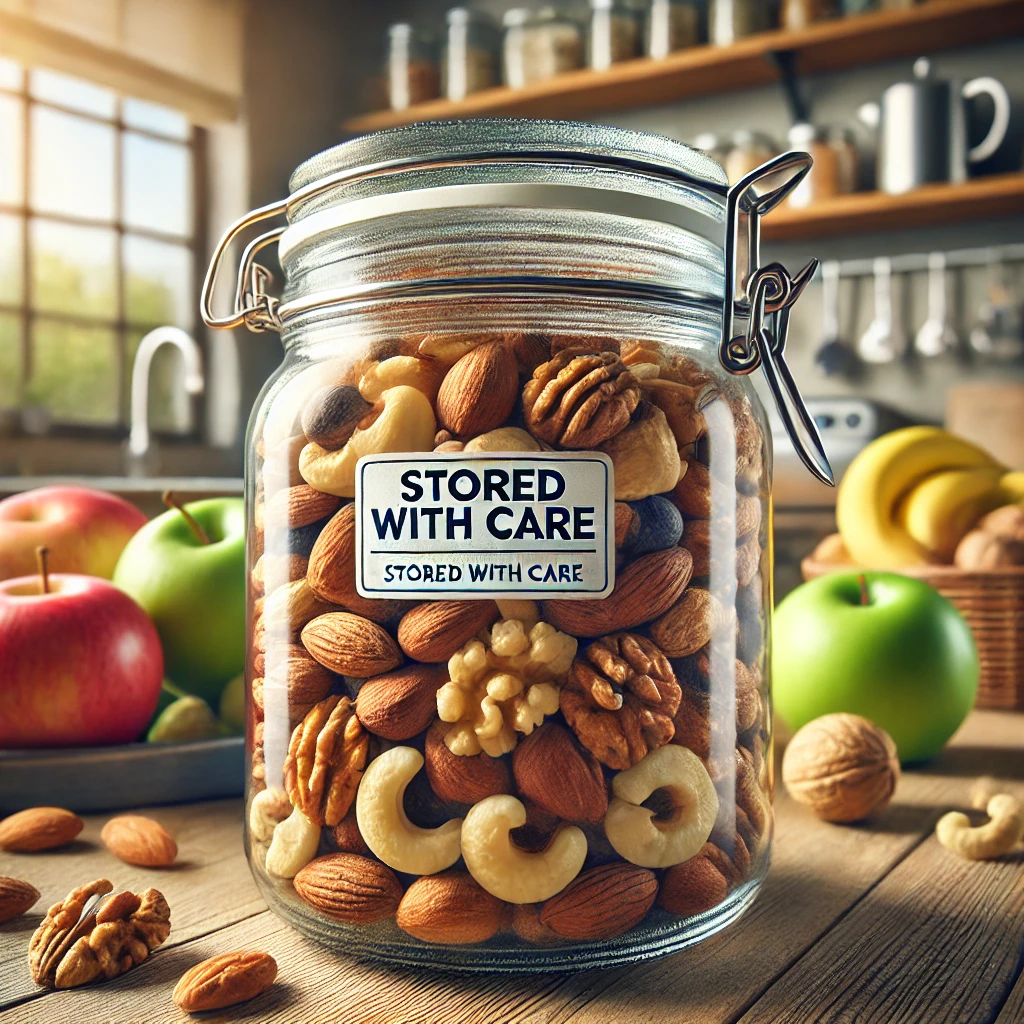Fatty foods can develop an unpleasant odor and taste due to rancidity during long-term storage. This happens when the unsaturated fatty acids in the fat oxidize, causing a radical reaction. To prevent this, you can add antioxidants, store them at low temperatures, keep them away from air and light, or pack them in nitrogen.
Foods that contain a lot of fat, such as nuts, can develop an unpleasant odor after prolonged storage. This is usually caused by rancidity. Rancidity is when food in storage develops an unusual taste and odor. When fats are exposed to the air for a long period of time and are subjected to heat, light, etc. This rancidity is related to the structure of the components that make up fats.
In general, fats are chains, with one molecule of fat containing one molecule of glycerol and three molecules of fatty acids. Fatty acids are made up of chains of bonds between carbons, including carbon-hydrogen and carbon-oxygen bonds, and all carbons are bonded to hydrogen except for the carbon bonded to glycerol. The bonds between carbons in fatty acids are mostly single bonds, but some are double bonds. If there are no double bonds, they are called saturated fatty acids, and if there are one or more double bonds, they are called unsaturated fatty acids. Omega-3 and omega-6 fatty acids are examples of unsaturated fatty acids. Oxidative rancidity occurs in fats with unsaturated fatty acid bonds, and the more double bonds there are, the more likely it is to occur. Glycerol does not have a significant effect on fatty acid rancidity.
For example, let’s say you have an A fatty acid with only omega-6 fatty acids bound to glycerol. The oxidation of the carbons in the chain of omega-6 fatty acids in A fatty acids leads to rancidity, and radical molecules play an important role in this process. Most molecules have an even number of electrons, but under the influence of external energy, they can change to an odd number of electrons. These changed molecules are called radical molecules. In general, radical molecules are high-energy, unstable, and easily react with the molecules around them, changing them into low-energy, stable non-radical molecules.
When the carbon next to the double bond in A-lipid is affected by heat or light, the A-lipid molecule changes into a high-energy, unstable allyl radical. The allyl radical combines with oxygen to become a peroxy radical. The peroxy radical reacts with other surrounding omega-6 fatty acid chains to create a new allyl radical, which itself transforms into a hydroperoxide, a non-radical molecule. The newly created allyl radical combines with oxygen to become a peroxy radical, and the chain reaction repeats. This continues to produce hydroperoxides, which break down to form compounds such as alcohols and aldehydes. These compounds are the main source of off-flavors.
Rancidity has a major impact on food quality and safety. Rancid food is inedible, and in serious cases, it can cause health hazards. Therefore, it is important to use methods to prevent food from going rancid.

One way to delay the onset of rancidity in fats is to add antioxidants. Antioxidants give an electron to a radical molecule so that it has an even number of electrons, making it less likely to react with other molecules. For example, vitamin E, a natural antioxidant found in plants, stabilizes peroxy radicals and prevents omega-6 fatty acid chains from forming into allyl radicals. There are many other ways to inhibit the factors that contribute to rancidity. For example, storing food at low temperatures and minimizing exposure to light and air are effective. Specialized packaging techniques, such as nitrogen packaging, can also slow down spoilage.
As you can see, fatty spoilage is an important issue for food preservation and quality, and there are many ways to prevent it. For foods that are stored for long periods of time, it is even more important to prevent spoilage in order to maintain freshness and provide a safe product for consumers.
